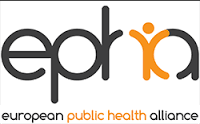On basis of the evidence on the effectiveness of self-regulation, EPHA concluded that there is no justification for endorsing self-regulation as policy mechanism to deliver public health objectives.
As follow-up to the event “Self-regulation: a false promise for public health?”, held on 18 October 2016 in the European Parliament, EPHA (European Public Health Alliance) published a briefing paper addressing the evidence on the effectiveness of self-regulation for attaining health objectives.
EPHA concludes that, based on available evidence, there is no justification for endorsing self-regulation as policy mechanism to deliver public health objectives. Voluntary commitments have not delivered the required breakthrough to improve public health outcomes in the area of alcohol harm and unhealthy diet.
It is stated that evolving away from the use of self-regulation in public health policy would be a logical next step. It would help cut ambiguity, allow attention to focus on the most effective ways of dealing with societal challenges and allow a consistent approach to emerge towards the divergent roles and responsibilities of different stakeholders in the process.

